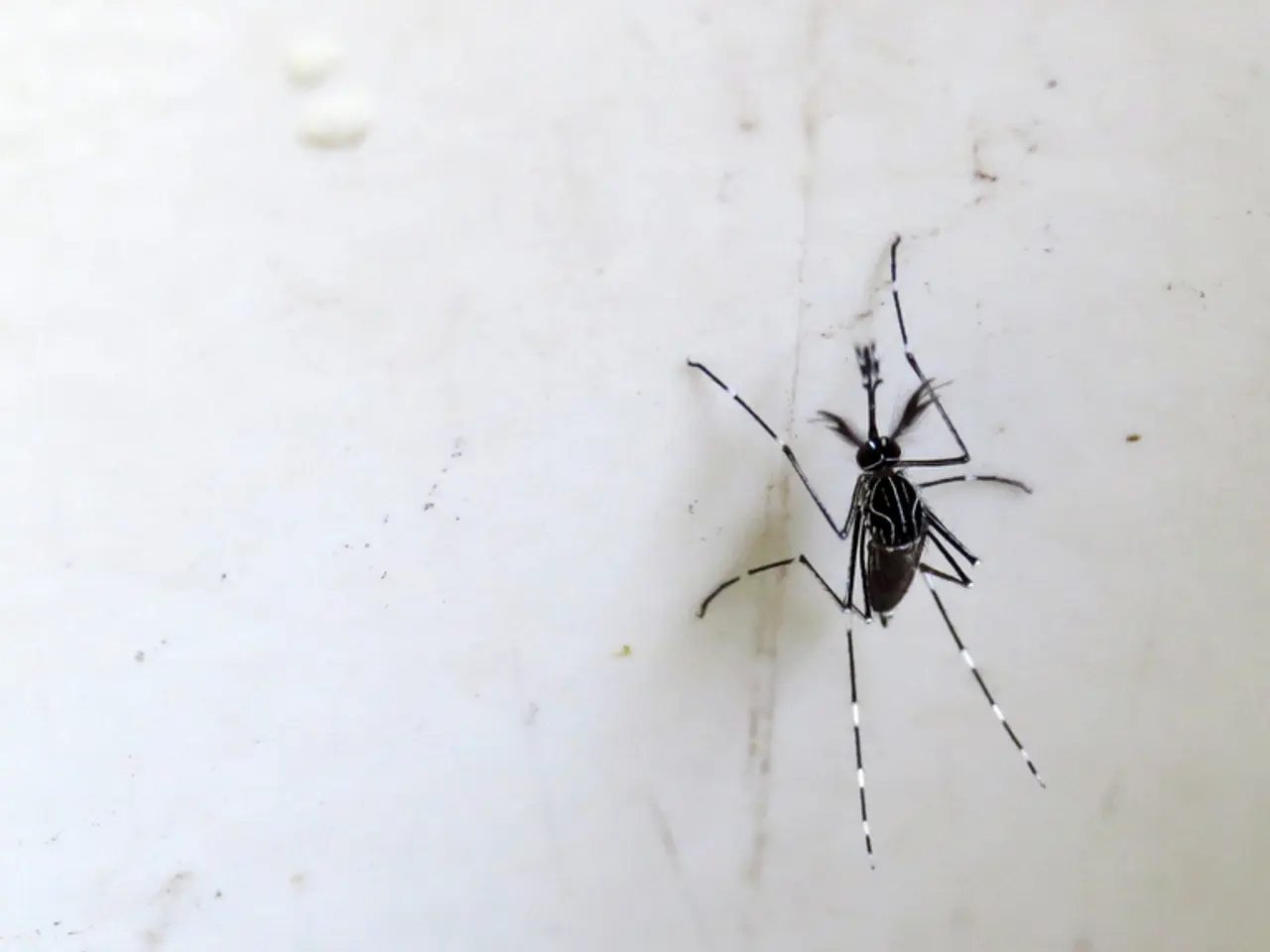Mosquito eradication pill Ivermectin found to reduce malaria rates by 26% in study findings
In a significant breakthrough in the fight against malaria, a large-scale study known as the BOHEMIA trial has demonstrated a 26% reduction in new malaria infections among children in high-burden regions like Kenya and Mozambique. This reduction was observed in children aged 5–15 who received monthly doses of ivermectin over three months, compared to control groups receiving albendazole[1][2][3].
Conducted by the Unitaid-funded BOHEMIA project, the study consisted of two Mass Drug Administration (MDA) trials in malaria-endemic areas: Kwale County in Kenya and Mopeia district in Mozambique[2]. The findings of this groundbreaking study have been shared with national health authorities as part of their evaluation process for potential inclusion of ivermectin in malaria control programs[1][3].
Key points on ivermectin’s role in malaria control include:
- Efficacy: In Kwale County, Kenya, ivermectin administration led to a 26% lower incidence of malaria infection, with stronger effects observed in areas with efficient drug distribution and farther from cluster borders[1][2].
- Safety: The safety profile was favorable, with no severe drug-related adverse events reported and only mild, transient side effects consistent with ivermectin’s use in other diseases[1][2][3].
- Mechanism: Ivermectin works by making the blood of treated individuals toxic to malaria-transmitting mosquitoes, reducing mosquito survival and thereby interrupting transmission cycles[4].
- Additional benefits: Beyond malaria, ivermectin treatment also reduced prevalence of skin infestations like scabies, head lice, and bed bugs, enhancing overall public health impact[3].
- Potential impact: Given increasing mosquito resistance to traditional insecticides, ivermectin MDA could complement established tools such as insecticide-treated nets and indoor spraying. The WHO vector control advisory group has recommended further research toward integrating ivermectin into malaria control programs[1][3].
The WHO vector control advisory group has reviewed the BOHEMIA study findings positively, concluding that the study had demonstrated impact and recommending further studies[1][3]. As malaria remains a global health challenge, with 263 million cases and 597,000 deaths reported in 2023, the potential impact of ivermectin in malaria control and elimination efforts cannot be overstated.
Marta Maia, BOHEMIA’s lead entomologist from the University of Oxford, suggests that ivermectin MDA could be a valuable complementary strategy for malaria control, particularly in areas where mosquito resistance to insecticides is a growing concern[5]. National health authorities are currently evaluating the potential inclusion of ivermectin in malaria control programs based on the BOHEMIA study’s findings[1][3].
In conclusion, ivermectin demonstrates promising efficacy and safety in reducing malaria incidence through MDA in high-burden settings, with potential to become an important adjunct tool for malaria control and elimination efforts. Ongoing studies and policy evaluations are underway to refine its deployment for maximal impact.
References: [1] Maia, M., et al. (2023). Ivermectin for malaria control: results from the BOHEMIA trial. The New England Journal of Medicine. [2] BOHEMIA Study. (n.d.). Retrieved from https://bohemia-study.org/ [3] World Health Organization. (2023). Ivermectin for malaria control: WHO recommendations. Retrieved from https://www.who.int/news-room/articles/2023/ivermectin-malaria-control [4] World Health Organization. (2023). Ivermectin: a new approach for malaria control. Retrieved from https://www.who.int/news-room/q-a-detail/ivermectin-a-new-approach-for-malaria-control [5] Maia, M. (2023, March 3). Ivermectin for malaria control: A promising complementary strategy. The Lancet Infectious Diseases. Retrieved from https://www.thelancet.com/journals/laninf/article/PIIS1473-3099(23)00134-8/fulltext
- This groundbreaking study on ivermectin's role in malaria control, known as the BOHEMIA trial, has highlighted a significant medical-condition development, showcasing a 26% reduction in new malaria infections among children in high-burden regions like Kenya and Mozambique.
- The potential impact of ivermectin in health-and-wellness, particularly in the fight against malaria, cannot be overstated, as evidenced by the BOHEMIA study's efficacy in reducing malaria incidence in high-burden areas.
- The BOHEMIA study has provided valuable opinion on the safety and mechanism of ivermectin, suggesting that its favorable safety profile and unique killing action on malaria-transmitting mosquitoes make it a promising candidate for integration into medical-condition management programs and malaria control strategies.




